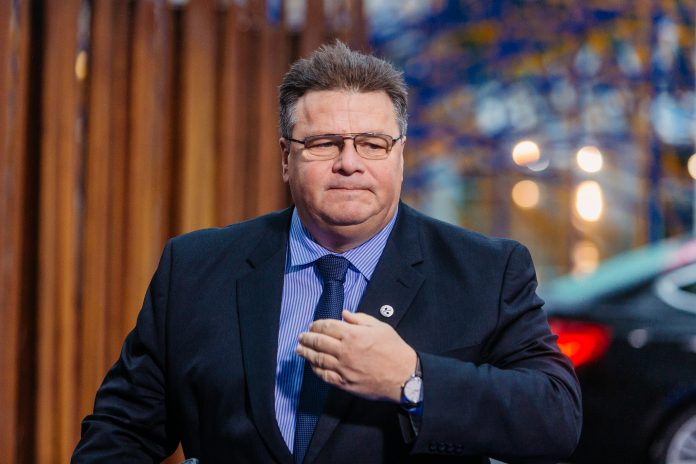Russia is testing the United Kingdom’s resolve and diplomatic links. According to Lithuania’s foreign minister Russian President Vladimir Putin sees the UK as increasingly isolated as it prepares to leave the European Union.
“Russia is always looking for weak points and may feel the UK does not feel very strong,” Linas Linkevičius said in an interview with the Guardian. “The Russian assumption may be that in the process of Brexit, the UK is weaker in terms of its isolation, and due to Brexit the EU will not be very enthusiastic in backing the UK up.”
The Lithuanian foreign minister added: “Fortunately that is not the case, and we will support the UK, but Russia acts by testing for reactions”.
As reported by the Guardian, Linkevičius also said the introduction of a British version of the US Magnitsky Act – one of the sanctions announced by British Prime Minister Theresa May on March 14 – would be very painful for the Russian elite, adding that the measure had already been introduced in Lithuania.
“You know how many oligarchs find safe haven in London – their money, the real estate, the children sent to secondary schools – and they cannot imagine their life without that,” he said. “Can you imagine if people were put on a UK list who already have real estates and property here? Of course, it will be painful.”
Meanwhile, France, Germany, the US and the UK issued a joint statement on March 15 declaring that no country but Russia could plausibly be responsible for the attack on the former Russian double agent Sergei Skripal and his daughter in Salisbury, Wiltshire.
In response, May announced the expulsion of 23 Russian diplomats from the UK and a range of other measures to crack down on “corrupt elites”, including new measures to combat spying.
As reported by the Guardian, Lithuania, long on the frontline of perceived Russian aggression, is one of the UK’s closest allies in combating Moscow. Linkevičius said he expected EU foreign ministers to offer a full-throated defence of the UK.
In turn, Linkevičius told the Guardian that the EU should not relax economic or individual sanctions against Russia over its military intervention in Ukraine. “Russia denies there is any impact, but it is very painful. They are trying to divide us and so we must be cohesive.”

